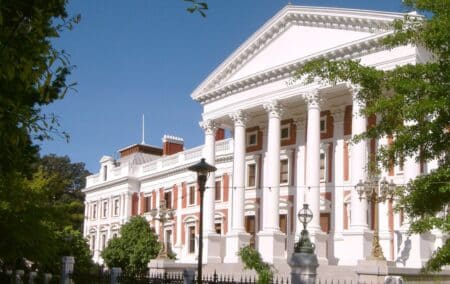Thresholds for representation in legislative forums would be profoundly undemocratic and unconstitutional and would do nothing to solve the problem of governance instability, says GOOD Secretary General and MP Brett Herron.
Writing in News24, he argued that the recent National Dialogue on Coalitions was intended to deal with crises in government, but the solutions put forward would compound them.
The size of parties does not determine the contributions that representatives are able to make. ‘Some of the most qualified public representatives, who give up jobs and careers to serve their country, represent new or smaller parties,’ he wrote.
He went to argue that concerns about the instability in government were overblown: ‘Sithole Mbanga, presenting a paper for the South African Local Government Association (Salga), brought some facts and a reality check. There are 257 municipalities in South Africa. Salga’s presentation revealed that only 82 are governed by coalitions, and of the 82, only 32 are regarded as “unstable”. In an emerging democracy, this is hardly a crisis, and the chaos is grossly exaggerated.’
The dialogue, he said, had a predetermined outcome, in proposing that parties achieving between 1% and 2% of the vote should not be admitted to Parliament.
This would disenfranchise thousands of voters who opt for smaller parties. In the 2019 election, these amounted to some half a million people.
‘Our democracy was never intended to produce a two-party state for the convenience of those who are losing dominance,’ Herron commented.
On the idea of a possible coalition between the ANC and DA, he remarked that this would be ‘a merging of power and dominance to suppress the voices of the minority.’
In 2019, GOOD secured 70 408 votes, or 0.4% of total, giving it two seats in Parliament.
[Image: I, PhilippN, https://commons.wikimedia.org/w/index.php?curid=2304571]

